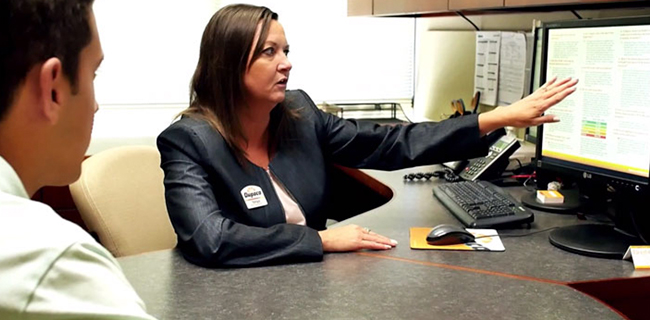
7 tips to help you rebuild your credit after divorce
By Tonya McGlaughlin | Assistant vice president, business services
I always had a decent credit score—until my divorce.
Several months after it was finalized, the phone calls started coming. I learned that payments hadn’t been made in months to credit card and loan balances still in my name. The late payments were dragging down my credit score at a devastating pace.
As a single mom of three, the unexpected bills weren’t in my budget. But I also couldn’t afford to let my credit score sit in the low 500s.
Even though it was embarrassing, I turned to my credit union for help. I needed a loan to pay off the debt so I could begin rebuilding my credit. When I was ready to buy a house, my score had climbed to the mid-600s. It was better, but not good, requiring me to make a large down payment.
Resources to help you navigate divorce >
If this predicament sounds familiar, know that I’ve been there too.
I had to work hard to rebuild my credit after my divorce. But I’m happy to report that, after years of making on-time payments and keeping my credit capacity in check, I hit the 800 mark again!
I did it, and you can too. These seven tips can help you start to rebuild your credit after divorce.
Meet with a trusted financial expert
You don’t have to do this alone.
Meet with a financial expert to let us know what’s going on. We can help you go through your credit and create a plan to protect and, if needed, rebuild your credit.
Review your credit, accounts and titles
Now more than ever you need to know which accounts list your name and which accounts list both names on your credit report.
You can use Dupaco’s free Bright Track credit monitoring service to learn what’s on your credit report. And you can follow up with a free Dupaco Credit History Lesson to learn what steps you need to take to rebuild your credit after divorce.
Review all of your accounts to refresh your memory on which ones list you individually and which accounts list you jointly:
Don’t forget to review whether any credit cards list each other as authorized users.
Request your free Credit History Lesson >
Close joint accounts
Once you know which accounts you hold jointly, you’ll need to refinance them into one name as soon as possible.
You want to make sure assets end up in the right name, because you can’t always predict what will happen during a divorce. Even with the best of intentions to remain civil, one or two wrong moves can make the civility disappear.
Remember that refinancing an auto loan doesn’t change the title of the vehicle. You’ll have to get the title reissued in one of your names.
If you have any joint credit cards that still carry a balance, I would strongly encourage you to get a loan to pay them off to protect your credit. You’ll also want to remove each other as authorized users from any credit card accounts.
Be on the same page about payments
Things are tense already. But be crystal clear about who is going to make which payments during and after the divorce.
Unfortunately, many times when divorced couples come to me and say who’s going to make the payments, one party ends up not following through.
This destroys both parties’ credit and makes more work for them down the road.
You don’t want to destroy each other’s credit.
Remember that it’s just a piece of paper
It can be difficult to accept this, but a divorce decree is just a piece of paper in the eyes of your lender.
That’s probably the hardest thing for divorced couples to swallow.
If your name is still listed on a loan or credit card account and the divorce decree orders your ex-spouse to make the payments, your lender still holds you responsible as well.
You must refinance the account to rid yourself of that burden.
Take out a credit card in your name only
For a long time after my divorce, I didn’t want to take out a credit card because of my negative experience with credit.
But Dupaco kept encouraging me to apply for a low-limit Visa credit card. Once I finally did, I kept a low balance paid off.
And that’s when I started to see my credit score climb.
Learn how to budget for a newly single life >
Continue to monitor your credit and accounts
Keep close tabs on your credit and financial accounts.
Our eNotifier Alerts can help you monitor transactions on your accounts. Within Bright Track, you’ll want to turn on credit monitoring.
A member recently came to me after receiving an alert that his credit had been pulled, even though he hadn’t applied for anything.
We went into Bright Track and discovered that his ex-spouse was making purchases with his Social Security Number.
By keeping an eye on what’s happening with your accounts, you’ll be in a much stronger position to rebuild your credit.
It pays to know what’s happening on your accounts!



